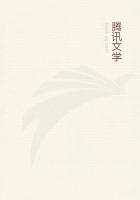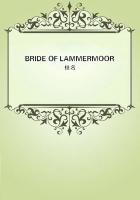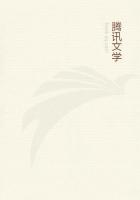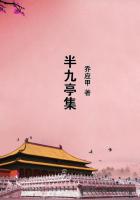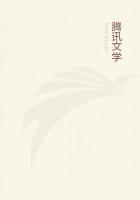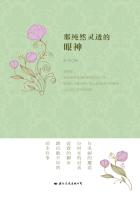Now which sort of rcplv did Lord Grey elicit on the part of the cabinet? The Duke of Newcastle, who had been foremost in protesting against the lawfulness of Palmerston's second Chinese war, answered, in the first instance, that "the very wholesome practice" had arisen of late years of "never moving an amendment to the Address ... unless some at party object "was to be attained. Consequently, Lord Grey being not prompted by factious motives, An pretending not to aspire to put Ministers out in order to put himself in what for the life of the Duke of Newcastle, could he mean by infringing upon that " very wholesome practice of late years?" Was he crotchety enough to fancy that they were to break lances except for great party objects? In the second instance, was it not notorious that the constitutional practice, so anxiously adhered to by Pitt and Canning, had been over and over again departed from by Lord Palmerston? Had that noble Viscount not carried on a war of his own in Portugal in 1831, in Greece in 1850, and, as the Duke of Newcastle might have added, in Persia, in Afghanistan and in many other countries? Why, if Parliament had allowed Lord Palmerston to usurp to himself the right of war and peace and taxation during the course of thirty years, why, then, should they all at once try to break from their long servile tradition? Constitutional law might be on the side of Lord Grey, but prescription was undoubtedly on the side of Lord Palmerston. Why call the noble Viscount to account at this time of the day, since never before had he been punished for similar "wholesome"innovations? In fact, the Duke of Newcastle seemed rather indulgent in not accusing Lord Grey of rebellion for his attempt at breaking through Lord Palmerston's prescriptive privilege of doing with his own -- the forces and the money of England -- as he liked.
Equally original was the manner in which the Duke of Newcastle endeavoured to prove the legality of the Peiho expedition. There exists an Anglo-Chinese treaty of 1843 by dint of which England enjoys all the rights conceded by the Celestials to the most favoured nations.
Now Russia, in her recent treaty with China, has stipulated for the right of sailing up the Peiho. Consequently, under the treaty of 1843, the English had a right to such passage. This, the Duke of Newcastle said, he might insist upon "without any great special pleading." Might he, indeed! On the one side there is the ugly circumstance that the Russian treaty was only ratified, and, consequently dates its actual existence only from an epoch posterior to the Peiho catastrophe. This, of course, is but a slight husteron proteron. On the other hand, it is generally known that a state of war suspends all existing treaties. If the English were at war with the Chinese at the time of the Peiho expedition, they, of course, could appeal neither to the treaty Of 1843, nor to any other treaty whatever. If they were not at war, Palmerston's Cabinet has taken upon itself to commence a new war without the sariction of Parliament.
To escape the latter power of the dilemma, poor Newcastle asserts that since the Canton bombardment, for the last two years, "England had never been at peace with China." Consequently the Ministry had pushed on hostilities, not recommenced them, and consequently he might, without special pleading, appeal to the treaties effective only during a time of peace. And to heighten the beauty of this queer sort of dialectics, Lord Palmerston, the chief of the Cabinet, asserts at the same time, in the House of Commons, that England all this time over "had never been at war with China." They were not so now. There were, of course, Canton bombardments, Peiho catastrophes, and Anglo-French expeditions, but there was no war, since war had never been declared, and since, to this moment, the Emperor of China had allowed transactions at Shanghai to proceed in their usual course. The very fact of his having broken, in regard to the Chinese, through all the legitimate international forms of war, Palmerston pleads as a reason for dispensing also with the constitutional forms in regard to the British Parliament, while his spokesman in the House of Lords, Earl Granville, "with regard to China," disdainfully declares "the consultation of Parliament by Government" to be "a purely technical point." The consultation of Parliament by Government a purely technical point!
What difference, then, does still remain between a British Parliament and a French Corps Ligislatif? In France, it is, at least, the presumed heir of a national hero who dares to place himself in the place of the nation, and who at the same time openly confronts all the dangers of such usurpation. But, in England, it is some subaltern spokesman, some worn-out place-hunter, some anonymous nonentity of a so-called Cabinet, that, relying on the donkey power of the Parliamentary mind and the bewildering evaporations of an anonymous press, without making any noise, without incurring any danger, quietly creep their way to irresponsible power. Take on the one hand the commotions raised by a Sulla; take on the other the fraudulent business-like manceuvres of the manager of a joint stock bank, the secretary of a benevolent society, or the clerk of a vestry, and you will understand the differencebetween imperialist usurpation in France and ministerial usurpation in England!
Lord Derby, fully aware of the equal interest both factions have in securing ministerial impotence and irresponsibility. could, of course, "not concur with the noble Earl (Grey) in the strong views which he takes of the laches of Government." He could not quite concur in Lord Grey's complaint that the Government ought to have called Parliament together, to have consulted them on the Chinese question," but he "certainly would not support him by his vote should he press the amendment to a division."Consequently, the amendment was not pressed to a division, and the whole debate, in both Houses, on the Chinese war evaporated in grotesque compliments showered by both factions on the head of Admiral Hope for having so gloriously buried the English forces in the mud.
~~~~~~~~~~~~~~~~~~~~~~~~~~~~~~~~~~~~~~~~~~~~~~~~~~~~~~~~~~~~~~~~~~~~~~~~

